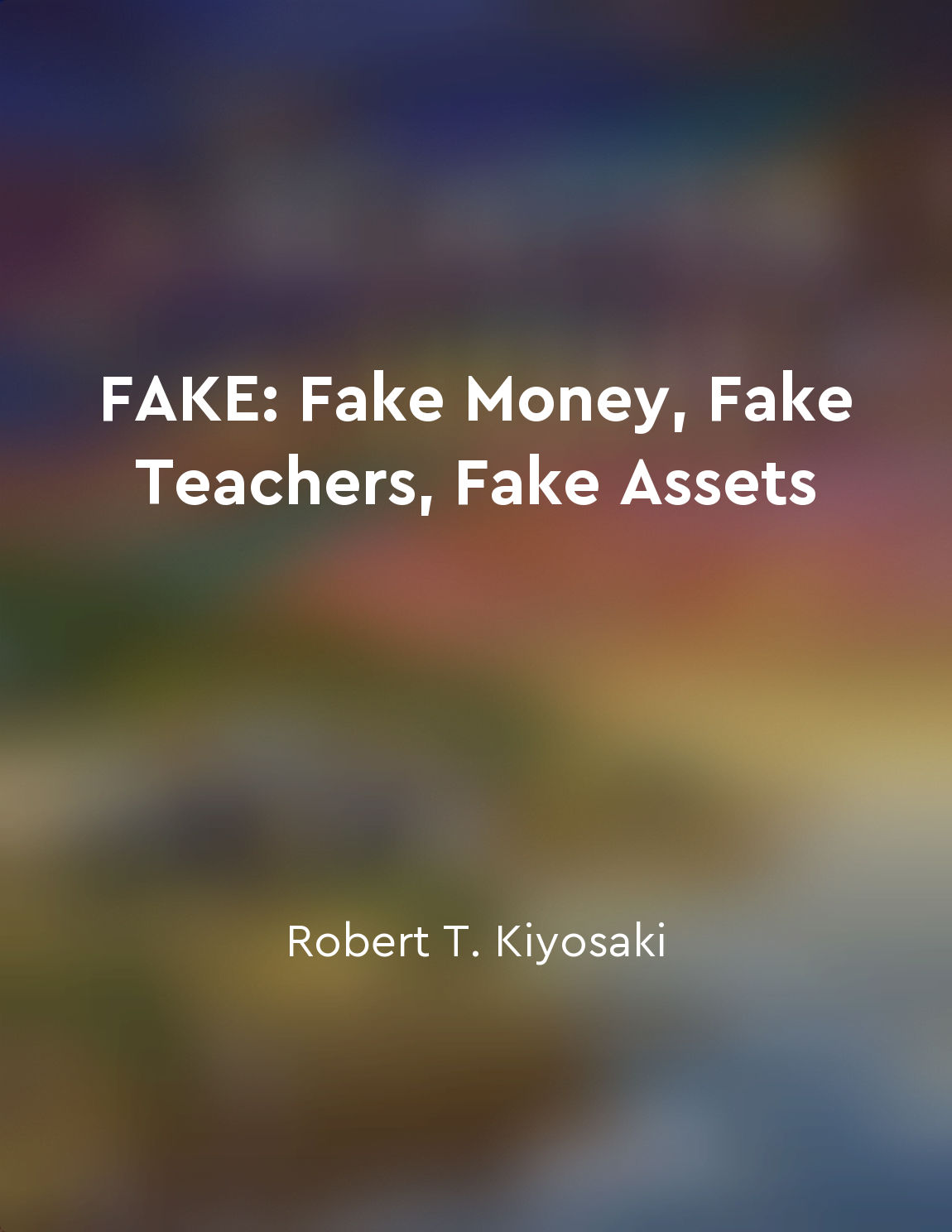
💼 Entrepreneurship
💰 Money & Investments
🌻 Personal Development
"FAKE: Fake Money, Fake Teachers, Fake Assets" by Robert Kiyosaki explores themes of financial education, investment strategies, and the impact of monetary systems on personal wealth. In the book, Kiyosaki argues that many traditional concepts surrounding money and assets are misleading or counterfeit, contributing to widespread financial ignorance and insecurity. The title highlights three main areas Kiyosaki critiques: 1. **Fake Money**: He discusses the devaluation of currency and how fiat money—currency that a government has declared to be legal tender but is not backed by a physical commodity—plays a role in creating economic instability. Kiyosaki emphasizes the importance of understanding the real value of money, advocating for alternatives like cryptocurrencies and tangible assets. 2. **Fake Teachers**: Kiyosaki challenges the conventional education system, which he believes often fails to equip individuals with practical financial knowledge. He advocates for seeking out real-world experiences and mentors, rather than relying solely on formal education, to achieve financial literacy and independence. 3. **Fake Assets**: The book critiques the idea of what constitutes a "true" asset. Kiyosaki stresses that many people mistakenly consider liabilities (like a primary residence) as assets. He encourages readers to focus on acquiring income-generating assets, such as real estate or businesses, to build genuine wealth. Overall, Kiyosaki's book serves as a call to action for readers to rethink their understanding of money, education, and value, empowering them to take control of their financial futures by seeking knowledge and cultivating critical thinking around investments and wealth creation.

10 Quotes